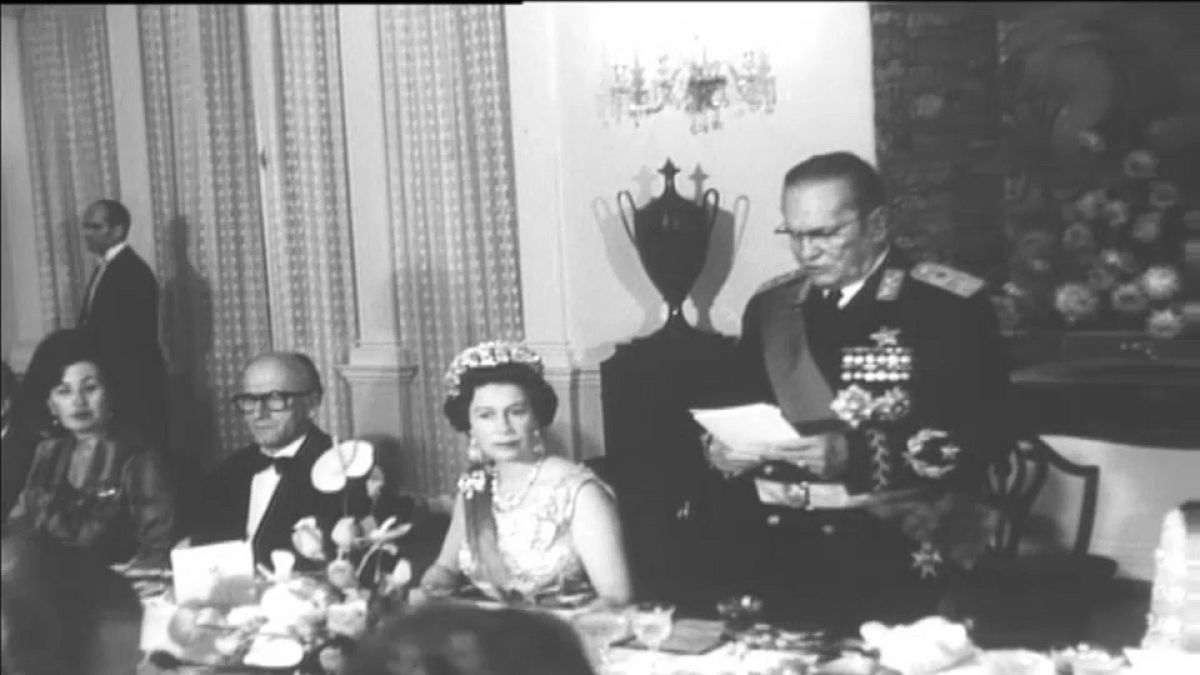Karađorđević was born in 1945 in Room 212 of Claridges Hotel, in London with rumours suggesting Winston Churchill declared the room Yugoslav territory for the day so that he could be declared King one day...
Queen Elizabeth II’s relationship with Yugoslavia was always a warm one -- despite the country's communist leadership eschewing its own monarchy.
In 1945, Elizabeth, Princess of York at the time, became godmother to Prince Aleksandar Karađorđević II, the son of the exiled Yugoslav King Petar II.
Petar II and his family found refuge in London after Nazi Germany occupied the southern Slavic kingdom over the course of 11 days in April 1941.
After the anti-fascist Partisans led by Josip Broz Tito liberated the country in 1945 with the help of their allies -- including British PM Winston Churchill -- the new communist government banned the royal family from returning to power.
Rumours at the time suggested that Churchill declared the room Aleksandar II was born in at London's Claridges Hotel Yugoslav territory for the day so that he could symbolically be declared king.
However, critics believe the relationship was not as welcome by the British royals as people thought.
Having supported the Partisans, the United Kingdom invited Tito to an official visit and an audience with the Queen in 1953 after he severed all ties with Joseph Stalin and the Soviet Union just five years prior.
Speaking to Euronews Serbia, Serbian historian Čedomir Antić said, ''when the British government and the British royal elite were favourable to Yugoslavia, it was usually when it benefited them, or they were forced to do so. There were never explosions of friendship, as we sometimes we like to believe."
In fact, it was the sudden onset of the Cold War as the UK and its allies emerged victorious from World War II that made the British authorities more amenable to having a neutral socialist country stay outside of the Iron Curtain, despite differences in politics.
Aleksandar II never acceded to the Yugoslav throne.
"The Serbian royal family lived a life of exile in London and never received neither adequate nor sufficient help from those with whom they allied themselves, although they did not have to," Antić continued.
Elizabeth II embarked on a return visit in 1972, making her the first British sovereign to visit a communist country.
Yugoslavia maintained good relations with the West and remained open to its cultural and other influences regardless of its proximity to Soviet Union's satellites and more similar ideological beliefs until its eventual break-up in the early 1990s.
After the break-up of Yugoslavia, the former royal family did not manage to regain the throne. But the family -- originating from Montenegro -- has been active in Serbian society, and the crown prince Aleksandar has lived in Belgrade's Dedinje Royal Palace since 2001.
Despite a small political movement turned party, POKS, platforming on Serbia returning to being a monarchy, the Karađorđević family has stated that it supports Serbia as a democratic country with its future in the European Union.


